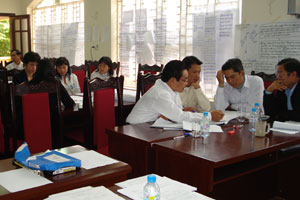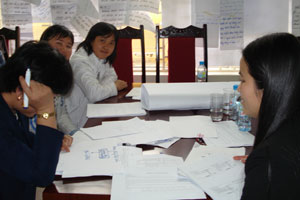P.O Box 2831
Cupertino, CA 95015, USA
Email Us: contact@gosfi.org
GoSFI-VN supports capacity assessment, competence-building, and program/project
management planning, monitoring and evaluation.
GoSFI’s Lead Specialist participated in designing and evaluating governance projects; supported capacity-building to develop short-term training courses in Vietnam’s training institutions; and conducted short-term training on project management, policy analysis, and policy monitoring for practitioners in both the government and non-government sectors.

GoSFI’s Lead Specialist has piloted the “Governance, Integrity, and Anti-Corruption” training course in Vietnam since 2010.
On-line training courses in Vietnamese start in October, 2012.

Governance, Integrity, and Corruption Prevention
This training seminar is designed to support anti-corruption work. It defines a basic concept of corruption through case studies to suit participants’ professional needs. The course is suitable for academics, researchers, governance program managers, cpublic officials, businesses, CSOs, and journalists.
Benefits to Participants
This course will help participants achieve the following goals:
Topic I: Understanding the Phenomenon of Corruption, and International Anti-Corruption Experiences
Topic II: Case Studies on Corruption and Its Relationship to Governance
Topic III: Understanding Integrity
Topic IV: Designing an Action Plan
The training course lasts from 2 to 4 days and is participatory, combining presentations with discussion and group work on case studies. A training needs survey is conducted prior to finalization in order to tailor a detailed course program to suit participants’ specific needs. Participants are encouraged to submit case studies based on their own work experience.